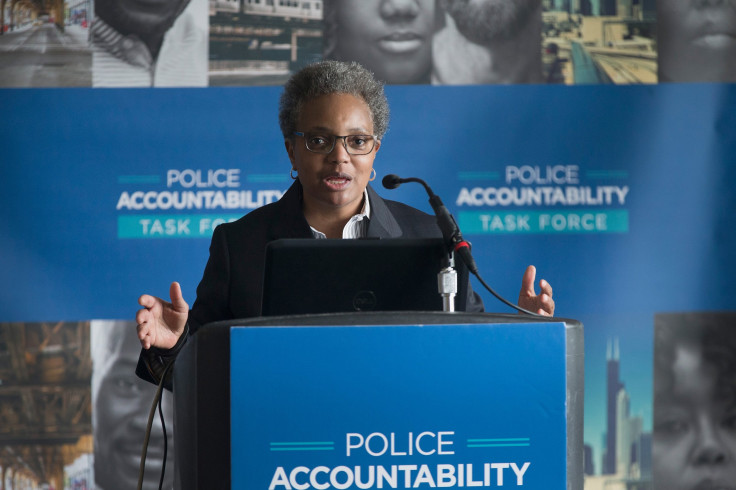Chicago To Pay Millions In Police Misconduct Settlements As CPD Faces Scrutiny From Task Force Report

The city of Chicago has agreed to two settlements worth over $6.45 million in two police misconduct cases in the wake of a Police Accountability Task Force report that found the Chicago Police Department was plagued by systemic racism and had lost the trust of the community.
Chicago will pay millions to the families of two men who died after interactions with police, according to the Guardian. The family of Philip Coleman, a mentally ill man who died soon after police arrested him in December 2012, will receive $4.95 million. A video had shown police officers using a Taser on Coleman 13 times before dragging him away in handcuffs. An autopsy concluded that Coleman died from a reaction to an antipsychotic drug he received while receiving medical care, but the report revealed he had experienced severe trauma, including more than 50 bruises during the altercation with police.
The city will also award $1.95 million to the family of Justin Cook, who died of an asthma attack after police allegedly denied him his inhaler while taking him into custody during a traffic stop in September 2014.
The announcement of the settlements came just hours after the release of a blistering report by a Police Accountability Task Force revealed evidence of an alarming degree of institutional racism in the Chicago Police Department and recommended massive reform, including fostering more transparency, abolishing the Independent Police Review Authority, which investigates allegations of police misconduct, and renewing a focus on community policing. Chicago Mayor Rahm Emanuel commissioned the task force following the release of a video showing the police killing of Laquan McDonald in January, which sparked civil unrest in the city.
"Reform is possible if there is a will and a commitment. But where reform must begin is with an acknowledgment of the sad history and present conditions which have left the people totally alienated from the police, and afraid for their physical and emotional safety," read the draft report, according to the Chicago Tribune. "While many individuals and entities have a role to play, the change must start with CPD. CPD cannot begin to build trust, repair what is broken and tattered unless — from the top leadership on down — it faces these hard truths, acknowledges what it has done at the individual and institutional levels and earnestly reaches out with respect."
Less than a month ago, the Associated Press reported that Chicago had paid $662 million as a result of judgments, legal fees and settlements for police misconduct cases in the city since 2004.
“It's not that Chicago is overrun by bad or abusive police officers,” Craig Futterman, a University of Chicago law professor, said in March. “But here, a small percentage of officers has been allowed to abuse some of the most vulnerable Chicago residents with near-impunity.”
© Copyright IBTimes 2024. All rights reserved.












